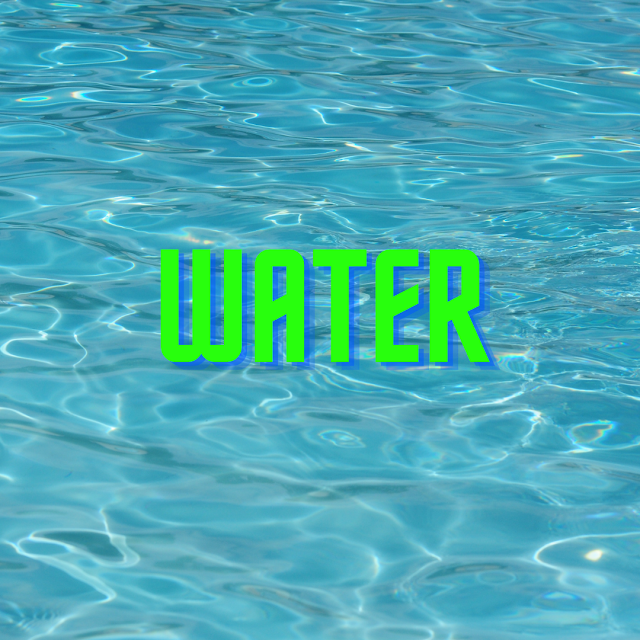WATER
Water is very important for living things. In his life, humans are very dependent on the availability of water on earth. Humans use water that comes from lakes, rivers, groundwater and rainwater for use in various purposes.
Water has 4 things that you must know, namely:
1. Water without us knowing it, we use it every day!
Water that we rarely think about that every day we must drink approximately 8 glasses/day or two liters, every day sometimes we also see mother washing clothes, we even take a shower sometimes twice a day, namely morning and evening, or when necessary, even when You see, your mother when you cook, you must use a little more water. Try to imagine if in one day there was no water, you definitely can't imagine! How thirsty we are, how uncomfortable our bodies are if we don't bathe all day, clothes will smell bad because we don't wash them if there is no water for a month or a week, maybe even your food menu doesn't taste good because maybe one of your favorite food menus is made from water. , for example, a menu of foods with broths such as soup, soup, curry, and so on.
2. Water has unique properties that we rarely think about!
Water sometimes if you think about it, maybe you've never thought about it, but you're a bit lazy to analyze, why does water flow from top to bottom, why doesn't it just go from the bottom up, or the top of the water is flat, how come it's not tilted, then if you put water down bowl, how come it just follows the shape of a bowl, then, how come almost half of the water that is cooked is lost, even if everything is cooked too long, where does the water disappear, what's the process. Maybe you've seen events like that happen, but after that, they just passed, aka they were ignored. At most, our answer is that water is like that, aka it is already from the sound.
Without us knowing it, water is actually its uniqueness, namely:
a) Water flows from high places to low places
Alias follow gravity / attraction / magnetism of the earth.
For example: river water, waterfall, etc
b) Water has a surface that is always flat and fits the place/container.
For example: in a tub of water, bowl, lake, etc
c) Water always presses in all directions.
For example: broken aquarium, leaky bathtub, etc
d. Water can seep through small cracks
For example: rags, oil lamp wicks, wet bathtub walls, etc
e. Water changes form when it is heated/cooled.
For example: evaporate, freeze, thaw, condense, etc
3. Water also has its unique uses
For example:
a. To dissolve substances
Such as sugar in sweet tea, salt in vegetable broth, and so on
b. For natural resources
Such as irrigation (watering rice fields), hydroelectric power plants (PLTA), and water transportation such as in oceans, seas, straits, lakes and rivers
4. Water also has unique events that we often ignore and under estimate.
Water is in a condition when it occurs when we put solid objects into it, namely:
a. Sink
Drowning occurs when the specific gravity of an object is greater than the specific gravity of water. Objects will definitely sink to the bottom aka sinking
For example: stone, iron, and soil, etc.
b. Flying
Float occurs when the specific gravity of an object is equal to the specific gravity of water. Objects will definitely be between the bottom of the water and the surface of the water.
For example: submarines, underwater divers, chicken eggs floating in salt water, etc.
c. Floating
Floating occurs when the specific gravity of an object is smaller than the specific gravity of water. Objects will definitely be above the surface of the water.
For example: cork bottle caps, wood, ships, etc
Water is briefly summed up as follows:
1. Water is a liquid
2. Water flows from a high place to a low place
3. Water has a fixed volume or amount of liquid, but its shape fits where it is
4. Water transmits pressure in all directions
5. Water seeps through small or fine cracks
6. Water in the capillarity event is the seepage of liquid objects through small cracks
7. Water through the capillary holes is fine or small cracks that can cause capillarity
8. Water can change into intangible states, namely solid, liquid, and gas.
9. Water that evaporates in the evaporation event is a change from liquid to gas
10. Water that condenses in the condensation event is a change from gas to liquid
11. Water that freezes in a freezing event is a liquid change to a solid state
12. Water in the liquefaction event is a change from a solid state to a liquid state
13. Water in the sublimation event is a change from solid to gas or gas to solid
14. Water in the form of dew is water droplets that come from water vapor
15. Water can dissolve certain substances, but there are substances that do not dissolve in water as well, such as oil, etc.
16. Water in the flow can generate energy
17. The greater the flow of water, the greater the power generated
Water is very important for our life, for that we must always conserve and conserve water. Use what is needed and save the rest, so that our future generations will also do the same in our efforts to conserve water.

